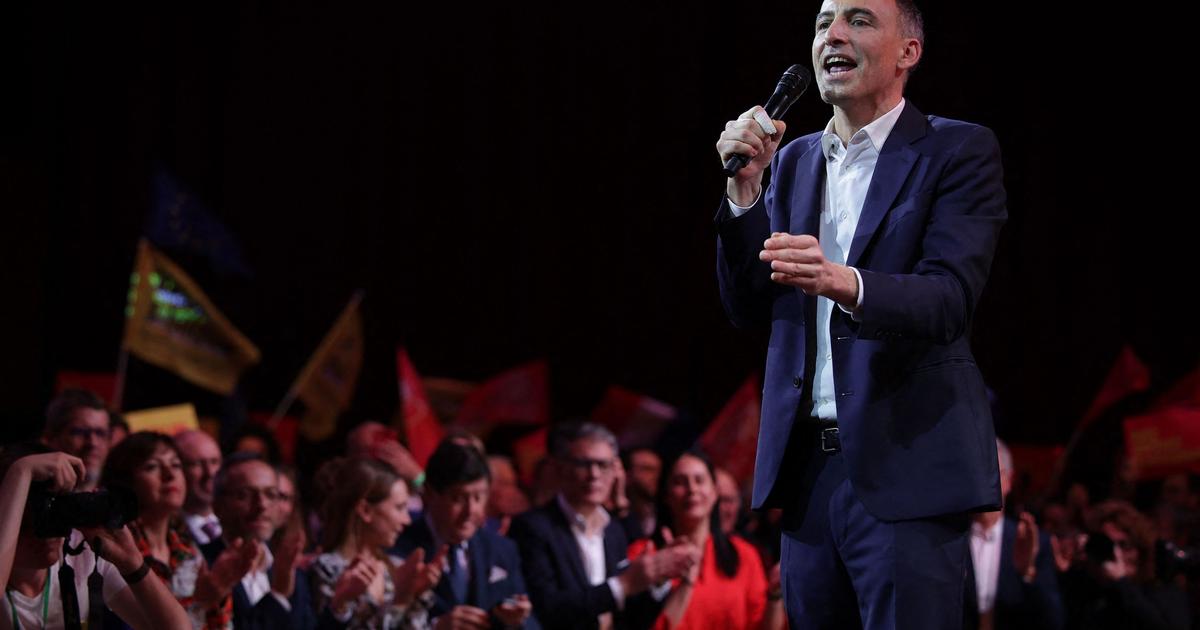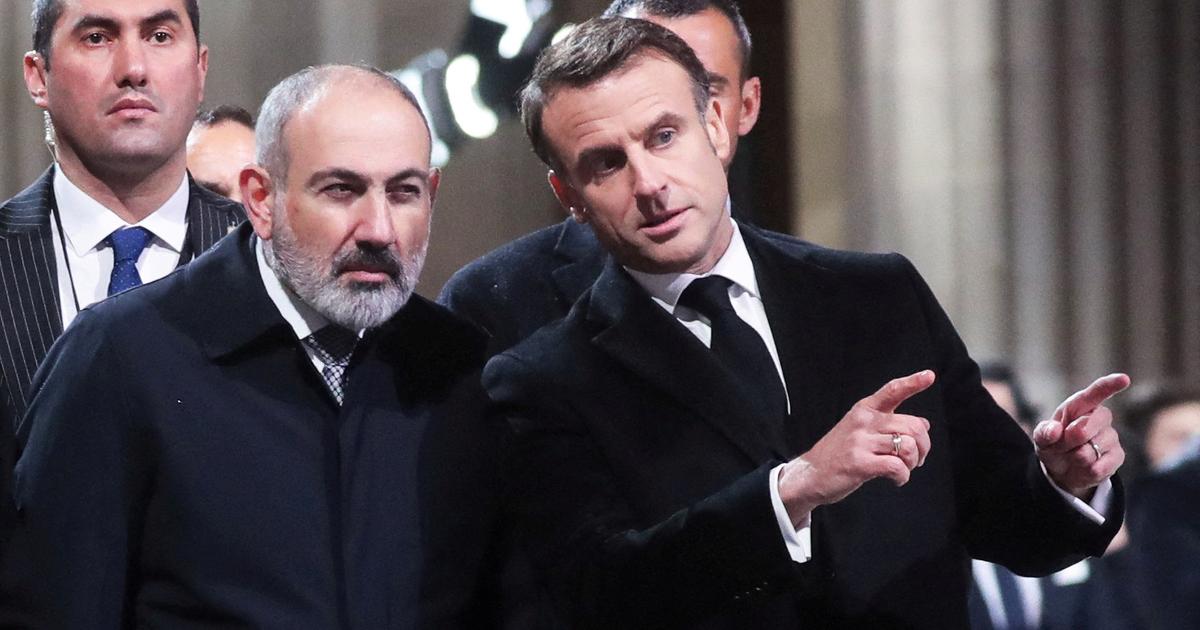Emmanuel Macron is looking for solutions to the political and social crisis that France has plunged into after the adoption of the pension reform, but he does not want to rush.
Despite the fact that on Monday a motion of no confidence against his government was on the verge of triumphing, despite having the majority of the French against it, despite the strikes in key sectors and despite the growing tension in the streets, the president of the Republic has chosen to cool the situation.
Macron has privately indicated that he excludes, for now, removing the prime minister, Élisabeth Borne, and changing the government, according to Agence France Presse.
He also rules out dissolving the Assembly and calling new legislative elections.
What he has asked his collaborators, according to this source, is that, within two or three weeks, they submit proposals to define a new method of government and a new agenda.
The president, after days of silently witnessing the inflammation in the country, plans to speak on Wednesday at 1:00 p.m. in a joint interview on the news of the private channel TF1 and the public channel France 2. It is an atypical time and format, for an audience over 55 years of age, a way of speaking to the France of small towns and villages that follows the news not on social networks, but on the news of a lifetime.
The two motions of censure to overthrow the Government and annul the reform failed on Monday afternoon and, therefore, the reform that will increase the retirement age from 62 to 64 years can be considered adopted.
The opposition had presented the motions after Prime Minister Borne on Thursday activated article 49.3 of the Constitution, which allows a law to be imposed without submitting it to a vote of the chamber.
Macron and Borne were accused of "denying democracy" by resorting to the expedited route of 49.3.
But Macron saved the reform and the government survived, although one of the two motions fell just nine votes short of an absolute majority and collected 19 from Los Republicanos (LR), the moderate right-wing party.
The result certifies a reality: since the June legislatures, in which the macronistas lost the absolute majority of the seats, they can only govern in alliance with the LR or by decree.
If in the television interview he does not announce a change of prime minister, he does not dissolve the Assembly or, as the unions and the opposition ask, he withdraws the reform, what can Macron do?
Tuesday at noon, Le Bourbon
brasserie
, meeting point for politicians, parliamentarians and journalists in Paris.
"We cannot continue to govern as we have governed," says Patrick Vignal, a deputy for Renaissance, Macron's party, at a table.
“We have lacked agility and flexibility.”
A protester holding a sign calling for the ouster of French Prime Minister Élisabeth Borne during a protest in Paris on Tuesday.
LUDOVIC MARIN (AFP)
Vignal is deputy for a district in the south of France, in the Montpellier area.
Many of his voters, who are Macron voters, are not happy.
Neither has he, like a growing but still silent number of members of the presidential bloc.
He believes that, before the pension reform, a law would have been necessary to reduce inequalities in the world of work and improve working conditions.
He now defends that, to calm things down, that law should be promoted.
And even put the pension reform on hold for a few months in order to improve it.
What will Macron say on television on Wednesday?
"Or he says: 'Look, 49.3 is a constitutional tool, it has not been possible to bring down the government, I take note and continue," replies the macronista deputy, and it is clear that he does not like that option.
The second is preferable, in his opinion: "Or, like other times, he does what he should do, which is to propose solutions that calm things down and propose to the French a new way of doing politics."
Macron was to receive Vignal and the rest of the deputies of the presidential bloc at the Elysée Palace on Tuesday night.
Before, the president had lunch with the presidents of the National Assembly and the Senate, Yaël Braun-Pivet and Gérard Larcher, respectively.
In the morning, he met with Borne.
Vignal finds it unlikely that Macron will immediately replace the prime minister.
“He doesn't like to act under pressure,” he says in Le Bourbon.
And dissolve the Assembly and advance the legislative elections?
“If it dissolves now, we, who have 250, lose between 30 and 50;
the winner is National Regrouping, which will go from 89 to more than 200”.
National Rally (RN) is the far-right party led by Marine Le Pen;
today, the first of the parliamentary opposition.
Sébastien Chenu, vice president of the RN and the National Assembly, told EL PAÍS on Monday, when the motion of no confidence was about to be voted on: “The Government is in a dead end.
The French do not accept the application of this reform.
The prime minister no longer has any authority.
The president must solve the following equation: how to prevent the French from revolting, since he imposes a text they do not want, and how to open a new phase with a prime minister who is useless”.
Macron's television intervention will hardly calm things down.
Paris and other French cities have been in riots for six nights, with unauthorized demonstrations and images of garbage and burning street furniture.
On the night of Monday to Tuesday, the police detained 300 people across the country.
The NGO Amnesty International has warned about "excessive use of force and abusive detentions"
Riots in the Republic Square, this Tuesday in Paris. YOAN VALAT (EFE)
Meanwhile, union mobilizations continue.
The refinery blockades have begun this Tuesday to affect the supply of fuel at gas stations in the southeast.
In Brittany and Lyon, roads have been blocked and protesters have occupied train tracks in various parts of the country.
They have also blocked the channel ferry terminal at the port of Ouistreham.
In Paris, thousands of tons of garbage continue to accumulate due to the strike in public cleaning.
The union demonstration on Thursday will be a test to assess the strength of the movement.
If Macron does not withdraw the reform under pressure from the street, the opposition has two other options to stop it.
One is the Constitutional Court.
Le Pen's party presented an appeal on Tuesday and the left is preparing another.
They question, among other points, that the Government has resorted to legislative tricks to shorten the time of the debates.
The Prime Minister herself has resorted to the Constitutional Court to verify the legality of the law.
The second option is the so-called shared initiative referendum.
On Monday, 252 deputies and senators presented a proposal to submit to a referendum a law that would limit the retirement age to 62 years.
But the process is complex and uncertain.
The Constitutional Court has one month to declare the proposal admissible.
Afterwards, its promoters have nine months to collect the signatures of 10% of the electorate, some 4.8 million.
If the initiative is successful, it would be the first time that a referendum of this type has been called in France.
Protesters in the Parisian square of the Republic, this Tuesday. LUDOVIC MARIN (AFP)
Follow all the international information on
and
, or in
our weekly newsletter
.
Subscribe to continue reading
Read without limits
Keep reading
I'm already a subscriber





/cloudfront-eu-central-1.images.arcpublishing.com/prisa/VLMAUIQBTJENDECUQ4TSUBDPLA.JPG)
/cloudfront-eu-central-1.images.arcpublishing.com/prisa/L5RZ22DWRZFVG63K2GHYFDMYEA.jpg)




/cloudfront-eu-central-1.images.arcpublishing.com/prisa/KMEYMJKESBAZBE4MRBAM4TGHIQ.jpg)



